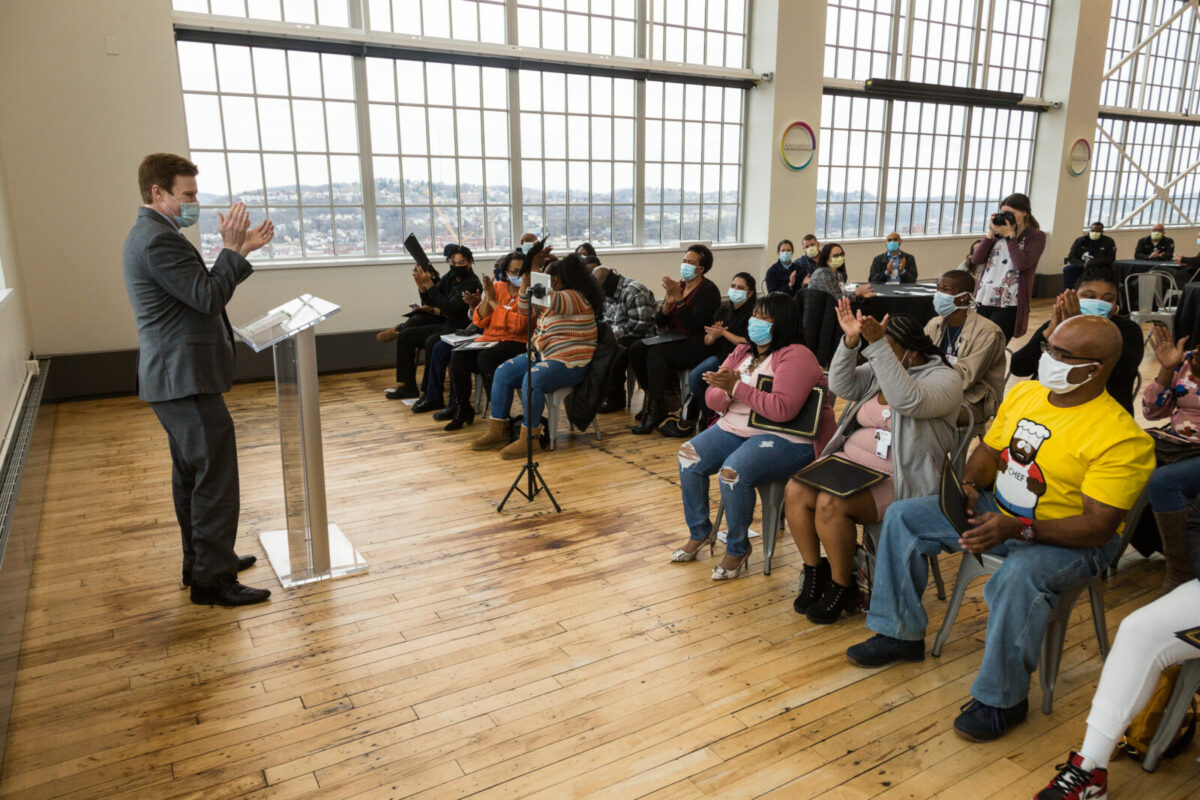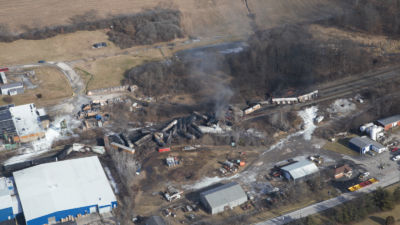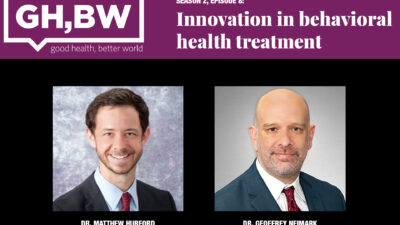In Episode 3, host Ellen Beckjord talks with Dan LaVallee, director of UPMC Center for Social Impact. There, he leads the Pathways to Work program, which provides workforce training and educational opportunities to individuals, including those enrolled in Medicaid. It’s a program UPMC Health Plan is actively seeking to expand throughout Pennsylvania, by creating new partnerships with nonprofit organizations involved in workforce development.
Recently, 21 people in Pittsburgh graduated from a training program for environmental service technicians through Pathways to Work. At a time when unemployment remains high they are able to move directly into jobs.
The move to expand Pathways to Work's partnerships in communities outside of Western Pennsylvania comes amid a seismic disruption in employment due to the COVID-19 pandemic.
Read part of the conversation, here, then listen to the entire podcast.
Can you say a little bit more about why workforce development rose to the top as something that UPMC Health Plan wanted to put specific effort behind?
It's been driven by what we hear from our members. Some have barriers to employment. So many are underemployed and were before the pandemic. And I think that was kind of a hidden thing in our communities and across the country. People are not in jobs that they can grow in. And we really feel, too, that as an integrated system and an employer when the largest non-governmental employer in the state that we want our workforce and especially at the health plan to look like those we serve, to be more like the people that we serve, especially in our underserved communities.
So this is for us a way to try to find pathways, especially into jobs at UPMC.
Our team has worked very hard to partner with individuals and organizations in communities like McKeesport, Mt. Oliver across the Commonwealth and Lancaster, and up in Erie, on employment programs.

What we're trying to do with Pathways to Work, in particular, is to take this model that we have in Western Pennsylvania and take it across the Commonwealth.

Tell us a little bit more about the Pathways to Work program.
The backbone of the program is building trust. We want pathways to careers and meaningful work opportunities, but that pathway is built with trust. Parts of the program we want to hire people, of course. And then secondly, we want to make sure that people can find the best training and education programs that lead them to career opportunities.
We want to give people a chance to be their authentic selves because that makes us better as a community and that makes us better as a company. I don't know the answers always but I do know that if we can spend a little time with each other and be our authentic selves, we'll get to the place of making this community even a little better than it already is.
What we're trying to do with Pathways to Work, in particular, is to take this model that we have in Western Pennsylvania and take it across the Commonwealth. We can take this to Lancaster, to Dauphin, to Harrisburg.
We have hospitals everywhere and in places where we don't have jobs — we can partner with some other employers and partners on the ground to get this done. So we see this program scaling pretty quickly.
Listen to the rest of the conversation on the Good World, Better Health podcast.
If you’re interested in learning more about the employment programs available through Pathways to Work, please email us at [email protected], or call us at 1-833-526-6271. (TTY: 711)
Learn more about the UPMC Center for Social Impact, by clicking here, or by email at [email protected] to inquire about other partnership opportunities.







